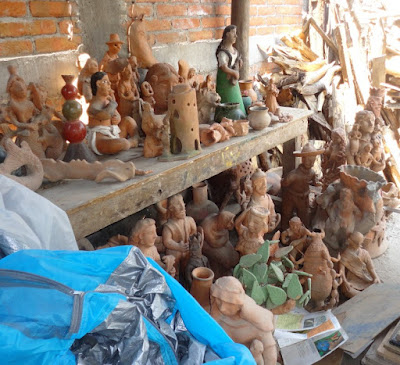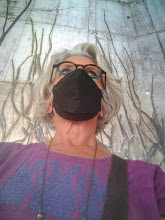Monday, April 30, 2018
Wednesday, April 18, 2018
The Masters (*male & female) - works from earth / El Maestro y La Maestra - obras de la tierra
Ciego por los últimos 15 años, pero no importa -- el maestro dice con todo convicción que sus manos ahora son más sensibles, y que su obra está mejor que nunca. Su esposa y hijos también hace artesanía de barro, y la obra de todos está en todos partes de su terreno: de pie, metido en estantes, colgado de los paredes, etc. Hay un árbol de granada, desde que nos ofrecen fruta madura, y hay hornos multiples en el suelo de su terreno (es donde las piezas están horneado). Esta pareja irradiaban algo encantador -- un contentamiento y una alegría real que habíamos venido a visitar.
Blind for the past 15 years, but never mind -- the master insists his hands are more sensitive now and that his work is even better. His wife and children also work in clay, and all of their work is all over their property: standing, on shelves, hung from walls, etc. There's a pomegranate tree from which we were offered ripe fruit, and there are multiple ovens in the ground on the property (that's where these pieces are fired). This couple radiated something lovely -- a contentedness and actual joy that we had come to visit them.
* There really is no satisfying, for me, word to name a female master in English, and mistress or madam feel unsatisfying in that they always imply a male counterpart. On the site Reddit, someone comments, "Mistress IS the feminine form of master. Opinion doesn't come into it." I disagree, completely. That's where Latin languages come in handy. Feminine / Masculine: Maestro / Maestra.
Subscribe to:
Comments (Atom)














































